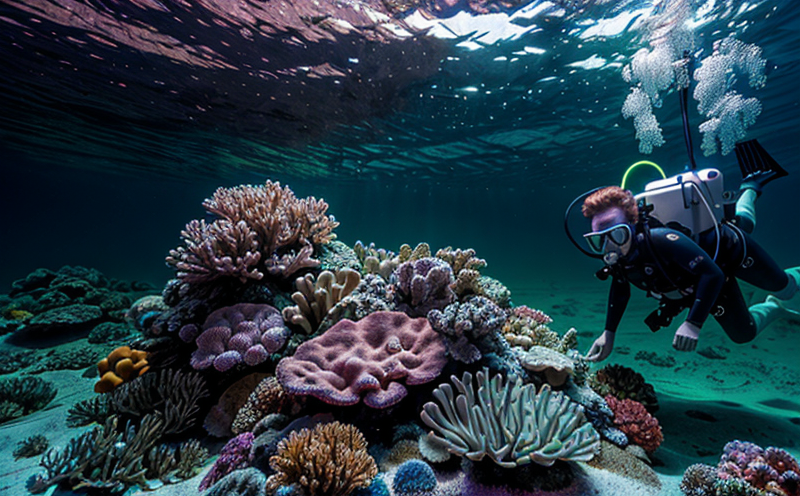EN 62031 Safety Testing of LED Modules for Marine Applications
The European standard EN 62031-4:2018 specifies the safety requirements and testing methods applicable to LED modules used in marine environments. This standard ensures that lighting devices comply with essential safety criteria, thereby safeguarding users and enhancing maritime operations.
Marine environments present unique challenges due to factors such as high humidity, saltwater exposure, vibrations, and extreme temperatures. Traditional incandescent or fluorescent lights are not designed for these conditions; therefore, LED modules specifically engineered for marine applications must meet stringent safety standards to ensure reliability and longevity.
EN 62031-4:2018 covers various aspects of LED module safety testing, including electrical insulation integrity, heat dissipation efficiency, mechanical stability under cyclic loading, and resistance against salt fog corrosion. Compliance with this standard guarantees that the products meet international quality benchmarks.
The first step in EN 62031-4:2018 involves thorough inspection of the LED module design to ensure it adheres to all specified requirements. Following initial assessment, electrical tests verify insulation resistance and power factor correction capabilities. Mechanical durability is evaluated through exposure to simulated environmental stresses like thermal cycling, shock loading, and immersion in saltwater.
Another critical aspect involves assessing the potential for fire hazards by examining materials used in construction and ensuring appropriate heat management systems are implemented. Additionally, light output stability under varying conditions must be demonstrated via photometric measurements. These comprehensive evaluations ensure that the LED modules not only function effectively but also remain safe across diverse operational scenarios.
In summary, adhering to EN 62031-4:2018 ensures compliance with global safety standards critical for marine applications, promoting reliability and reducing risks associated with lighting failures in challenging environments. This process underscores the importance of rigorous testing procedures tailored specifically towards maritime settings where conventional lighting solutions may fall short.
| Standard | Description |
|---|---|
| EN 62031-4:2018 | Safety requirements and testing methods for LED modules in marine environments. |
| IEC 60950-1 | General safety requirements for electrical equipment in the home. |
Applied Standards
The application of EN 62031-4:2018 involves several key tests that ensure LED modules meet the necessary safety and performance criteria for marine applications. These include:
| Test Type | Purpose |
|---|---|
| Insulation Resistance Test | To evaluate the integrity of electrical insulation. |
| Voltage Standing Wave Ratio (VSWR) Measurement | To ensure proper signal transmission and reflection characteristics. |
| Thermal Cycling Test | To assess thermal stability under fluctuating temperatures. |
| Salt Fog Corrosion Test | To determine resistance against saltwater exposure. |
Benefits
Adhering to EN 62031-4:2018 brings numerous advantages for manufacturers and end-users alike:
- Enhanced Safety: Ensures that LED modules used in marine environments comply with stringent safety standards, reducing the risk of accidents or failures.
- Increased Reliability: By meeting these requirements, manufacturers can produce more durable and dependable lighting solutions suitable for harsh conditions.
- Better Performance: Compliance guarantees that LED modules perform consistently under various environmental stresses, maintaining optimal performance throughout their lifecycle.
- Promotes Trust: Meeting international standards builds confidence among clients and stakeholders regarding the quality and safety of products.
Eurolab Advantages
Eurolab offers unparalleled expertise in marine lighting testing, leveraging advanced facilities and cutting-edge technology to provide comprehensive solutions:
- Comprehensive Testing Capabilities: Our state-of-the-art laboratories are equipped with specialized equipment designed specifically for evaluating LED modules under marine conditions.
- Expert Technical Knowledge: Our team comprises seasoned professionals well-versed in the nuances of EN 62031-4:2018 and related standards, ensuring accurate interpretation and application during testing processes.
- Custom Solutions: We tailor our services to meet individual client needs, offering flexible approaches that align with specific project requirements.
- Quick Turnaround Times: Leveraging efficient workflows and streamlined procedures allows us to deliver timely results without compromising on quality.





